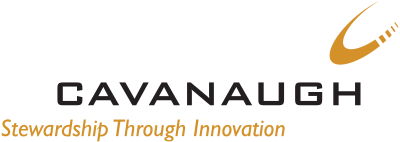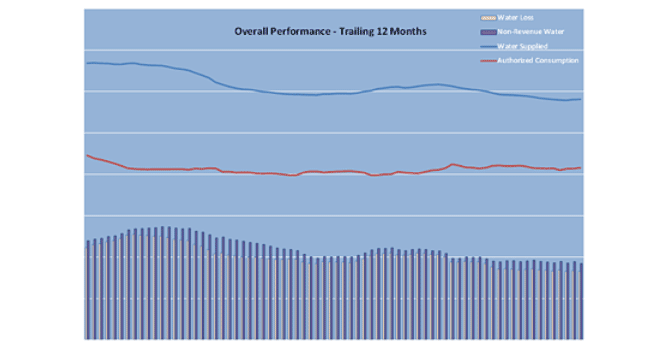Reducing Water Losses with a Broad, Effective Solution
Confronting challenges with the water system
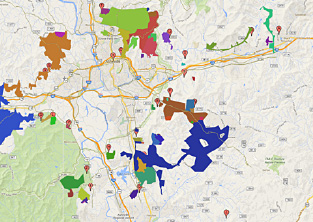 A map of the City of Asheville water service areas, with various pressure zones and booster stations indicated.
A map of the City of Asheville water service areas, with various pressure zones and booster stations indicated.The City of Asheville, North Carolina, is known for an award-winning record of resource stewardship. For many years, the city had been proactively investigating ways to reduce water losses through NRW management. It formally established a NRW management program in 2012 – and was making progress towards a long-term goal to reduce its overall carbon footprint 80% by 2030.
However, the city government continued to face challenges to its water system efficiency. Its aging water system dates back to the 1880s, when Asheville first constructed a reservoir on Beaucatcher Mountain. The city was also involved in a political battle against a state-legislated takeover of the water system.
Creating an NRW management program with Cavanaugh
The City of Asheville chose Cavanaugh to help establish an NRW management program because it recognized that managing water loss:
- Demonstrates exceptional customer service
- Keeps water rates reasonable
- Supports being a good environmental steward
- And makes smart business sense.
Asheville engaged Cavanaugh because the city’s terrain and system are complex – and it needed our focused, national expertise. At Cavanaugh, we believe truly effective and sustained NRW management requires the right techniques – and that these techniques must be reinforced with the appropriate support to ensure lasting success.
We worked with Asheville to design a solution that featured:
- NRW management as part of the business culture, with reinforcement and coaching of new attitudes and behaviors
- Full implementation of International Water Association (IWA)/American Water Works Association (AWWA) best practices in NRW management.
Improving water system efficiency – a closer look
Meter management: The program included a revenue-driven strategy, developed to determine just how often customer meters needed to be tested, repaired or replaced. The analysis was based on statistical meter performance and the business case for revenue recovery from customer meters.
Billing practices: Cavanaugh and Asheville analyzed the customer meter and account database, along with the customer consumption history, to identify NRW flags for further investigation. More than 50,000 accounts were scrutinized for trends, patterns and anomalies. The city investigated flagged accounts in the office and the field. As a result, the study uncovered unmetered facilities, under-registered customer meters and under-billed accounts (due to miscodings).
Pressure and leakage management: The team developed protocols that linked the already strong efforts of the valve exercising, leak survey and leak repair crews. The team honed data tracking procedures to maximize the information captured for future leak detection. The team also collected targeted pressure recordings throughout Asheville’s vast distribution network – spanning more than 1,300 miles of water main and more than 40 hydraulically independent pressure zones. These recordings were used to develop predictive models and business cases for widespread implementation of pressure management in this topographically varied and complex system.
Interdepartmental cohesion and productivity: An existing framework of teams – representing a full cross-section of the city’s Water Resources Department – drove the NRW management program’s accountability and effectiveness. The NRW team comprised six sub-teams: Audit, Customer Service, Unbilled Customers, Metering Services, Valve & Leak and Pressure Management.
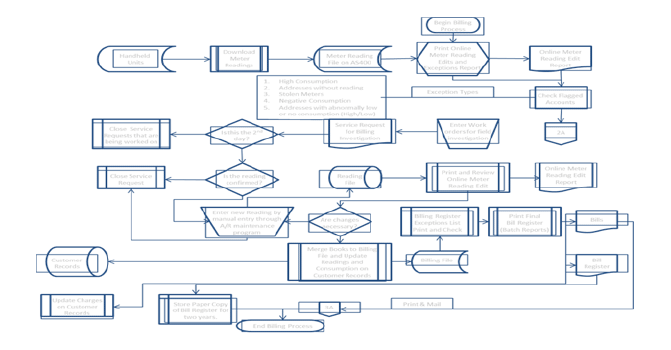
Creating a flow chart of the water billing process. This essential step identifies existing checks and balances within the water system’s process for handling meter and billing information – and flags areas where additional quality control may be needed.
Realizing impressive results – and gaining international recognition
Within the first two years since the City of Asheville began following its new NRW management program, it has documented reduced water loss from loss control activities, as shown in Figure 1 below. This graph reflects the tracking of water loss performance measures for the city government, on a trailing 12-month average. These measures include total water loss and Non-Revenue Water on a daily, monthly and yearly basis.
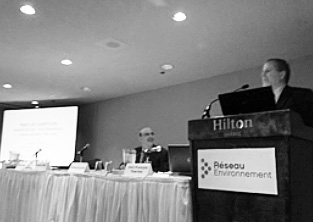 Will Jernigan and Steve Shoaf in Quebec presenting NRW management recommendations.
Will Jernigan and Steve Shoaf in Quebec presenting NRW management recommendations.Many water utilities in Quebec have only partial metering of their water customer population. The Province of Quebec is embarking on a comprehensive water conservation initiative and addressing reliable accounting of consumption and water loss is a major challenge to solve as this initiative moves forward. While water scarcity is not a pressing issue in this part of the world, Quebec has recognized that a sustainable future requires stewardship of finite resources. Cavanaugh’s work on the Asheville NRW management program demonstrated this philosophy in action.

